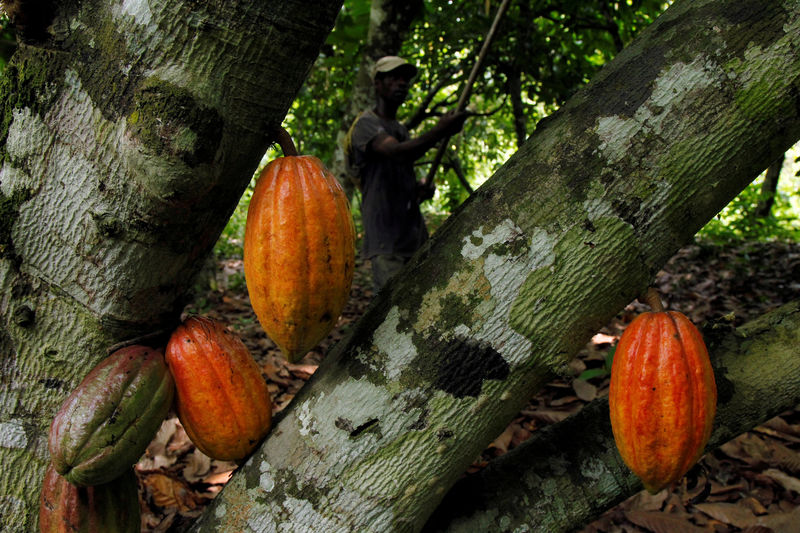Investing.com — The world’s love of chocolate — and some very unsavory crop weather — is combining to deliver a prize bonanza to West African cocoa growers.
Cocoa traded on ICE Futures U.S. hit 12-year highs, peaking at $3,640.50 per tonne in Wednesday’s trade, as analysts noted a surge in post-COVID demand for all things chocolate, as well as the adverse impacts of the La Nina weather phenomenon on the crop.
The last time a tonne of U.S.-traded cocoa fetched more was in March 2011, when it rose to as high as $3,826.
“It Looks like we have a combination of things,” said Sterling Smith, director of agricultural research at AgriSompo North America in Omaha, Nebraska. “Global cocoa demand has been really sudden and improving. A lot of countries that weren’t traditional cocoa buyers are now becoming consumers and now that’s pushing things higher. There have been crop issues as well.”
On the demand side, he put it down partly to the new Chinese appetite for chocolate, despite the apparent slowdown in the world’s No. 2 economy.
“You can say there’s a post-pandemic boom for chocolate consumption and one of them is this big place called China,” Smith said. “The Chinese weren’t consuming a lot of cocoa even in the early 2000s. Now, with their population, even a small percentage gain makes a huge impact on cocoa demand.”
While latest Chinese import data on chocolate wasn’t available, figures from 2021 provided by trade database OEC shows the country imported $518 million worth of chocolate products in 2021, becoming the 15th largest importer for such merchandise.
In the case of La Nina, the cooling of the Pacific ocean and wetter-than-average weather spawned by that was causing rotting and disease in cocoa trees in top West African producing countries Ivory Coast and Ghana.
“Ideas of tight supplies remain based on more reports of reduced arrivals in Ivory Coast and Ghana” for cocoa beans, said Jack Scoville, crop analyst at Chicago-based brokerage Price Futures Group.
“Talk is that hot and dry conditions reported earlier in Ivory Coast could curtail main crop production, and main crop production ideas are not strong,” Scoville added. “Mid-crop production ideas are lower now with diseases reported in the trees due to too much rain that could also affect the main crop production.”
